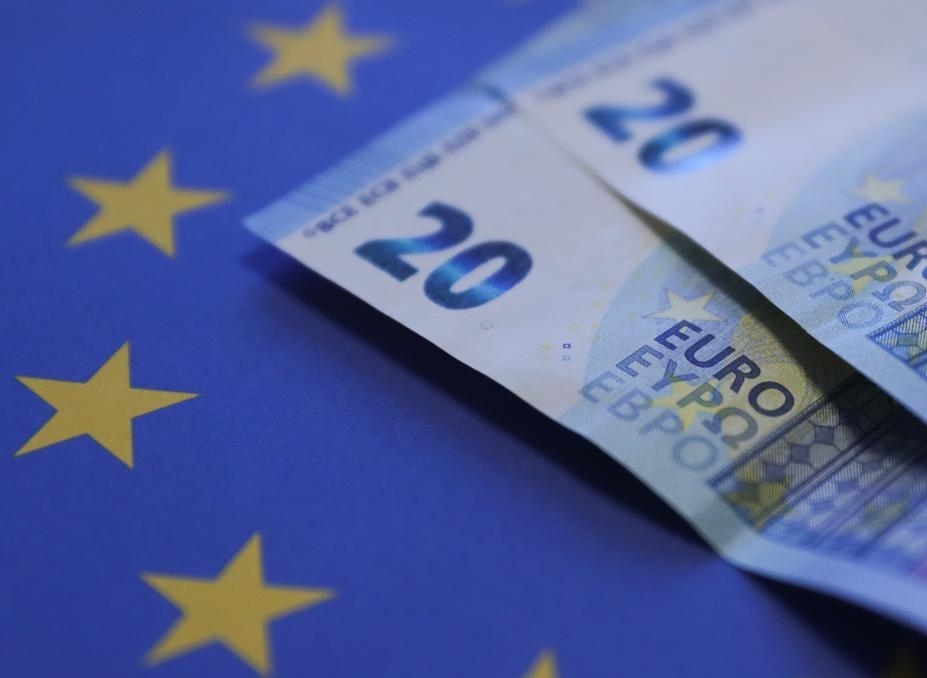
Recently, the Eurozone economy has once again released signals of recession. Germany and France, as core economies, have experienced consecutive months of contraction in the private sector, with manufacturing PMI consistently below the boom bust line and a significant decline in growth momentum in the service sector. The latest decision of the European Central Bank to maintain interest rates unchanged, but facing the dual impact of downward inflation pressure and escalating trade disputes, the marginal effect of the policy toolbox is weakening. The Eurozone economy is facing its most complex structural challenges since the 2008 financial crisis.
Although the manufacturing PMI in Germany rose slightly by 0.3 percentage points to 43.5 in July compared to the previous value, it is still deeply trapped in the contraction zone. The Chief Economist of Hamburg Commercial Bank pointed out that although the production of the automotive industry increased by 1.2% month on month, the order volume of pillar industries such as chemical and machinery manufacturing decreased by 11.3% year-on-year. Even more concerning is that the momentum of the first rebound in new business volume in the service industry after 10 consecutive months of decline has abruptly come to an end, with the July PMI service industry index falling to 49.2, indicating a weak foundation for domestic demand recovery. The economic difficulties in France have become more prominent, with private sector activity shrinking for 11 consecutive months. The initial value of the composite PMI in July fell to 46.8, hitting a new low since November 2023. S&P Global Analysis points out that the fiscal austerity plan and low business confidence form a vicious cycle: if the government implements subsidy reduction policies, household disposable income will decrease by about 8 billion euros, directly impacting the consumer market, which accounts for 70% of GDP.
The structural contradictions between Germany and France reflect the deep-seated crisis of the eurozone economic model. As an export-oriented economy, Germany's exports to the United States decreased by 19.7% year-on-year in the first half of 2025. The supply chain restructuring caused by the China US trade war has resulted in Germany losing its position as a global value chain hub; France, on the other hand, is plagued by a high welfare system and industrial hollowing out, with manufacturing accounting for 12.7% of GDP by 2025, down from 18.3% in 2000.
The Eurozone Service PMI plummeted from 52.8 in January 2025 to 49.7 in July, completely breaking the three-year recovery trend after the pandemic. This transformation is driven by three factors: the decision of the United States to impose a 30% tariff on EU steel and aluminum products, resulting in a 23% decrease in German logistics industry orders and a 1.5 billion euro reduction in French tourism revenue; Although natural gas prices in 2025 have decreased by 67% compared to their peak in 2022, geopolitical conflicts have led to a 14% year-on-year increase in transportation costs; The Eurozone Consumer Confidence Index has been below -15 for 14 consecutive months, marking the longest downturn since 2009. Real wage growth has dropped from 2.1% in 2024 to 0.9% in the first half of 2025, directly suppressing demand for service consumption.
Faced with the risk of economic recession, the European Central Bank chose to remain inactive at its July meeting, maintaining the deposit facility rate at 2.0%. There are three considerations behind this decision: although the overall inflation rate has dropped to 2.0%, the service sector inflation remains at 3.8%, and the core CPI has increased by 2.5% year-on-year, indicating that the pressure on the demand side has not been fully relieved; The euro appreciated by 13% against the US dollar this year, directly lowering the import price index by 2.1 percentage points; Public debt in the euro area still accounts for 90% of GDP, and the yield of 10-year treasury bond in Italy, Greece and other countries has exceeded 4%, limiting the space for expansionary fiscal policy.
To break through the current predicament, the eurozone needs to promote reforms in three dimensions: Germany needs to accelerate its transformation towards strategic industries such as new energy and artificial intelligence, while France should deepen labor market reforms and improve productivity in the service industry. The European Commission plans to expand the investment scale of the "Green Deal" to 1.2 trillion euros, with a focus on supporting disruptive technologies such as hydrogen energy and carbon capture; Establish an EU North American Free Trade Area independent of the WTO, incorporating new rules such as digital service tax and carbon border tax into the negotiation framework; Promote the issuance of common bonds to keep the borrowing cost difference among member countries within 100 basis points. The French Prime Minister proposed the establishment of a 500 billion euro "recovery fund" to narrow regional development gaps through transfer payments.
The current Eurozone economy is at a crossroads. If we cannot break the trade deadlock and restart the growth engine of the service industry before the fourth quarter of 2025, we may repeat Japan's "lost thirty years" mistake. Global investors are closely monitoring the progress of the EU US tariff negotiations in August, which may determine whether the eurozone can avoid a technical recession.

报告显示,中国电力投资加速增长,预计2024年电网基建投资将超过5300亿元。
近日,市场迎来了一则引人注目的消息:工业巨头3M公司(MMM.N)在本周五公布了其季度业绩报告,随后股价飙升至近两年来的
最近,外媒给OpenAI算了笔账,今年可能要血亏50亿美元。
近日,巴黎奥运会和世界铁人三项协会联合发布了一项重大决定,宣布因塞纳河水质污染问题,原定于近期进行的奥运会铁人三项首次下
当地时间7月18日,法国巴黎发生了一起令人震惊的持刀袭警事件。
近期,一则重大消息在国际舞台上引起轩然大波,马来西亚宣布加入金砖国家。
调查发现,互联网和智能手机的使用干扰了韩国近五分之一学生的生活。